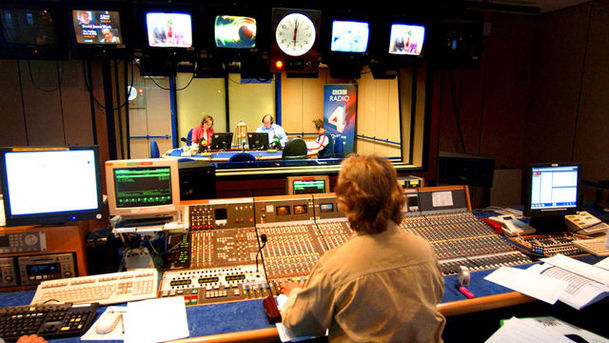Today - 07/12/2009

Presented by John Humphrys and Evan Davis. The 2009 United Nations Climate Change conference opens today in Copenhagen. Professor Jean-Pascal van Ypersele, vice-chairman of the IPCC, spoke of the effect of the leaked emails from East Anglia at the weekend. A survey commissioned by the BBC World Service has found concern about climate change has risen. Environment analyst Roger Harrabin outlines the ambitions for the summit. Former shadow home secretary David Davis is calling on the government to make a statement in response to claims that it misled Parliament over the extraordinary rendition of two Pakistanis by British forces to a secretive US prison in Afghanistan in February 2004. Environment correspondent Sarah Mukherjee reports from East Anglia about an arable farmer who started farming worms to turn rubbish into compost. It's become so successful that he's giving up the rest of his farming activities to concentrate on the worms. What does a large influx of inexperienced MPs mean for a parliament and for a government? Veteran political commentator Anthony Howard on the changes in the House of Commons after the next election. The government is to announce a major shift in mental health policy in England, with a new emphasis on tackling depression. Professor Til Wykes, a clinical scientist at the Institute of Psychiatry at King's College, London, Lewis Appleby, national director for Mental Health, and Dr Lynne Friedl, author of the World Health Organisation's report Mental Health, Resilience, and Inequalities, discuss the new strategy. Thought for the Day with Dr Colin Morris. Wealthy Conservative backer Lord Ashcroft, who has donated more than five million pounds to the Tories in recent years, has come under concerted pressure from Labour and Liberal Democrat politicians to say whether or not he pays tax in the UK. Gordon Brown is expected to announce Labour's plans for slashing public spending by 12 billion pounds over four years. Economics editor Stephanie Flanders outlines the cuts and Prof Colin Talbot from Manchester University Business School explains the government's strategy. Delegates from 192 countries are gathering in the Danish capital Copenhagen for the opening of the long-awaited UN summit on climate change. The conference has been described by some scientists as the most important the world has ever seen. Climate change secretary Ed Miliband outlines the conference's aims. The Treasury is drawing up plans to levy a one-year windfall tax on the bonuses paid to some UK-based bankers. Business editor Robert Peston explains Chancellor Alistair Darling's aims. From the Today programme's audio advent calendar - memorable moments from the programme this year, Evan Davis learns how to play Bohemian Rhapsody on a comb. The psychological needs of many Britons are going unfulfilled, according to a report by the think-tank the Young Foundation. The organisation's director, Geoff Mulgan, explains how the government is lagging behind public opinion. The 2010 edition of Who's Who goes on sale today. Richard Fitzwilliams was the editor of International Who's Who for 16 years and says it should be more up to date. As the UN summit in Copenhagen begins, our science correspondent Tom Feilden looks at the state of the scientific evidence about global warming. A BBC investigation into the effects of commercial logging in Borneo has been told of the rape and abuse of tribal women and girls - some as young as ten. Logging companies have been accused of turning a blind eye to the allegations for nearly a decade. In recent months the Penan tribe - armed with blow-pipes - have been blockading roads in an attempt to halt logging companies entering their ancestral lands. Angus Stickler reports. The author of a new book, The Value of Nothing, argues that we have a misplaced notion of value and free markets are blinding us to other ways of seeing the world. The book's author, Raj Patel, and the director general of the Institute of Economic Affairs discuss the current economic model.